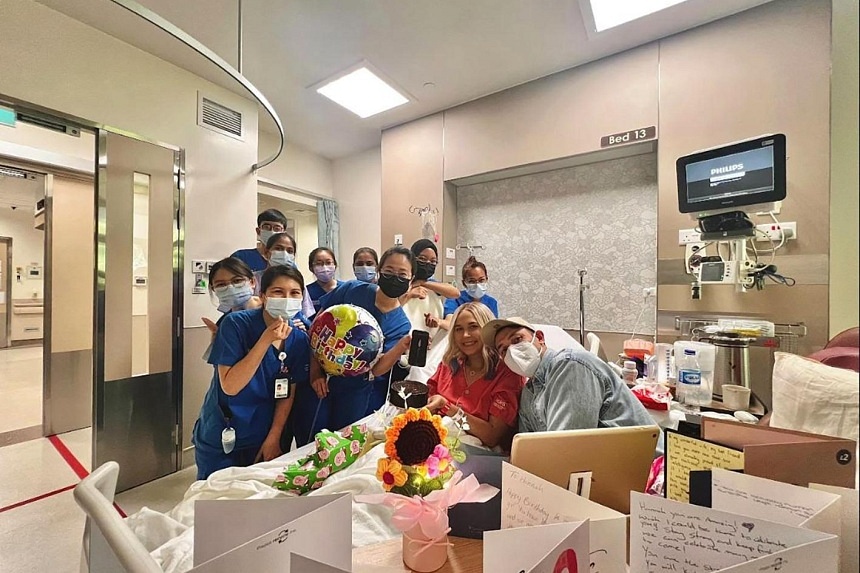Running out of options in Australia, the couple was referred by their haematologist in St Vincent’s Hospital Sydney to the Yong Loo Lin School of Medicine at the National University of Singapore (NUS Medicine) and the National University Health System (NUHS).
They flew over to Singapore in October 2023 and Mrs Thomas underwent testing for the experimental CD7 CAR T-cell therapy.
The therapy was developed by researchers and clinicians from NUS Medicine and NUHS, and had been tested on 17 patients from 2019 to 2023, including 12 at NUH and five at Ospedale Pediatrico Bambino Gesu, a paediatric hospital in Rome, Italy.
“All 17 patients have failed more than three lines of treatments – each of which can be a combination of many chemotherapy drugs – and (for the) majority of them, even bone marrow transplantation,” said Professor Allen Yeoh, who led the clinical application of this new technology.
First, T-cells were harvested from the patients. In the laboratory, these harvested T-cells were expanded and an artificial gene, known as anti-CD7 CAR, was inserted.
The modified cells were then re-injected into the patient, where the anti-CD7 CAR T-cells would get to work – recognising and destroying leukaemia cells which had a protein – CD7 – on their surface, added Prof Yeoh.
This anti-CD7 CAR technology was developed by Professor Dario Campana from the department of paediatrics at NUS Medicine. He received the Singapore President’s Technology Award in 2020 for this invention.
Sixteen out of 17 patients, including Mrs Thomas, achieved complete remission within one month after treatment. Even with the use of flow cytometry tests which can detect one leukaemia cell in 10,000 normal cells, the patients’ leukaemic cells were undetectable.
Acute lymphoblastic leukaemia – known as ALL for short – accounts for about 30 per cent of all newly diagnosed cancers in children in Singapore.
However, T-cell acute lymphoblastic leukaemia, T-ALL, is a rarer form of the cancer.
An estimated 85 per cent of children and 60 per cent of adults newly diagnosed with T-ALL go into remission after chemotherapy or bone marrow transplant, based on studies done in Malaysia and Singapore.
There are about five newly diagnosed cases of T-ALL that occur per year in Singapore across adults and children, said Dr Bernice Oh, the first author of the study and consultant of the paediatric haematology and oncology division in the department of paediatrics, Khoo Teck Puat – National University Children’s Medical Institute (KTP-NUCMI).
Prof Yeoh is also the head and senior consultant of the paediatric haematology and oncology division in the department of paediatrics, KTP-NUCMI and the National University Cancer Institute, Singapore (NCIS).

